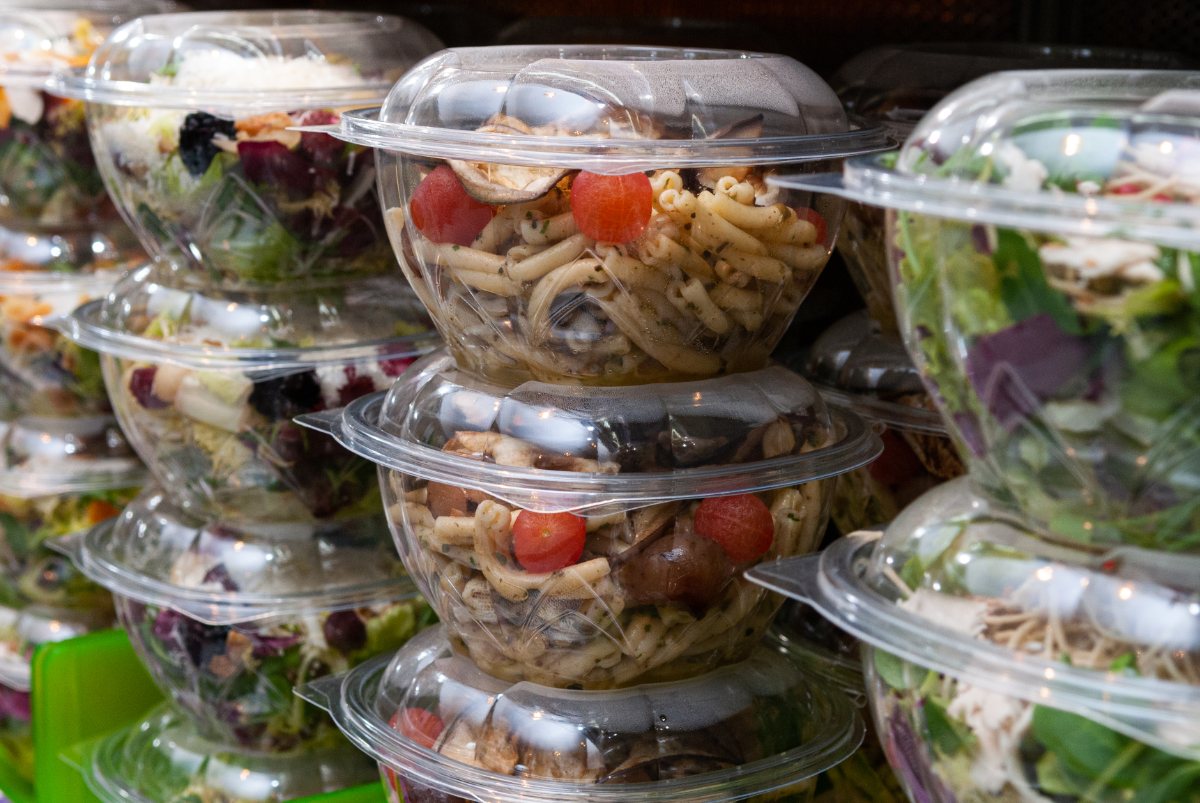
Plastics, as we all know, are central to our food system and to our economy. Each year more plastics get made from raw materials, and each year more enter the environment or end up in landfills. The EPA estimates that in 2018 (the most recent year for which data is available), only about 14 percent of plastic was recycled, which means that the other 86 percent either becomes litter, landfill, or burned for energy—and needs to be replaced with new virgin plastics next year.
The Story of Plastic is an Emmy Award-winning documentary first released in 2019 and currently streaming online through the Discovery Network. Created by the Story of Stuff Project, the documentary shines an uncomfortable but much-needed light on the impacts of the plastic industry on people and ecosystems, and our reliance on plastics in the food system and elsewhere.
“Ninety percent of the dialogue is about 10 percent of problem,” explains Stiv Wilson, the co-director of the Peak Plastic Foundation and the creator and producer of the documentary. “But most of the coverage focuses on downstream problems of packaging and waste,” such as the communities around plastic production facilities (such as “Cancer Alley” in Louisiana).”
“It’s our goal to use story to elevate people working at the front line, tell the stories from a perspective of lived experience of harm, and create intersections and bridges for people from different walks of life to be a part of the overall narrative shift, so we can transform power and engage with this issue more systematically.”
Civil Eats spoke with Wilson earlier this month to learn more about the size and shape of the plastic problem, how the pandemic reshaped the plastic landscape, and how food fits into the puzzle.
Food is a part of the problem—you’ve mentioned that consumer goods packaging represents about 50 percent of all plastic packaging—but that’s not all. Can you say more about that?
One of the issues with plastic pollution is that, living in a privileged, rich country, you may hear about the problem writ large, but if you are going to the grocery store, and you’re buying things [that are almost inevitably in plastic packaging], and you dispose of them—whether in the garbage or even in recycling—you wouldn’t think you’re part of the problem. You’re not exporting waste personally, you’re not littering. Most consumers aren’t aware that people literally died [from the toxic chemicals emitted into their neighborhoods from plastic-producing factories] so they could have that potato chip bag.
Our goal is to shift the narrative so people understand the full life cycle of plastics and make more informed choices. Ultimately, we want to move away from this material, since we see plastic as the vehicle of globalization and capitalistic growth.
“Most consumers aren’t aware that people literally died so they could have that potato chip bag.”
In terms of food and beverage packaging specifically, how much of the global plastic industry does that represent?
Packaging in all consumer goods is approaching 50 percent. That’s the sector of growth and a lot of that is food packaging. That’s how Procter & Gamble, Johnson & Johnson, Nestlé, and other conglomerates are selling their products in the developing world and opening markets: By selling smaller amounts that are on a lower price point [but require as much if not more packaging per ounce].
So now, all kinds of products—from soy sauce to shampoo to coffee—are all coming in these [multi-layer] single-serve packages that are fused materials, which makes them nearly impossible to recycle from an economic standpoint; it costs more to actually process them than the end product is worth.
And the economics don’t work because the infrastructure doesn’t exist to do it at scale, or to do it cost-effectively?
The infrastructure for [some] recycling doesn’t exist, because it’s not profitable to do it. Recycling was never meant to address a waste stream this large. And for 40 years, the plastics industry has said the solution to plastic pollution is recycling. But if recycling was actually cutting down on the amount of plastic being made, they wouldn’t be promoting it—they full well know recycling isn’t cutting into their profits from virgin plastics.
There is a massive pivot by the oil and gas industry underway, shifting from fossil fuels for energy and transportation to plastics. And I fear that climate advocacy is not tracking this bait and switch.
